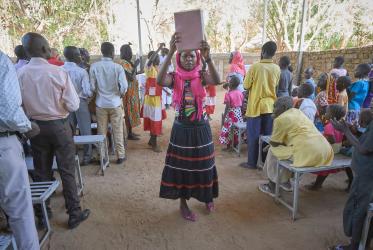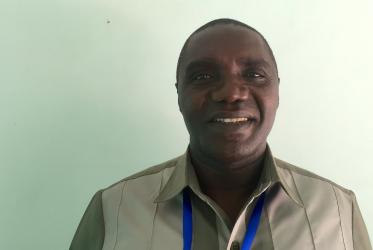It’s 70 years since the World Council of Churches was founded in Amsterdam on 23 August. In addition to a commemoration service in Amsterdam on 23 August, the WCC, its member churches and partners are planning a variety of events to move forward on our ongoing Pilgrimage of Justice and Peace, and at the same time honour and learn from these 70 years of ecumenical endeavour. Dr Abuom, from the Anglican Church of Kenya, is the moderator of the WCC Central Committee. She is the first woman and the first African in the position in WCC’s history. In an interview, she reflects on the evolution of the WCC in the past 70 years.
17 January 2018






